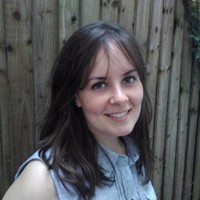Teacher/Educationalist Voice 2
Sally Hall – PGCE Graduate

Sally Hall completed her PGCE in 2015, but rather than continuing into mainstream teaching, she went on to work in democratic and self-directed settings for children, and for Phoenix Education, a UK charity championing children’s rights in education.
She told us she was “so disappointed to find schools to be such harsh and unhappy places to work in.”
Why did you decide not to become a teacher after you qualified?
I found the PGCE very challenging and struggled with some things that I saw and experienced during my time in schools. For example, I really struggled with some behaviour management practices that I witnessed. These included teachers humiliating students in front of their peers, the heavy use of isolation booths and in one school, ‘the house’ which was the extremely unwelcoming school detention building.
I also saw teachers stressed, breaking down into tears in front of classrooms of children, and fearing unsupportive senior leaders entering their classrooms during lessons.
Over time, I came to feel that our work with the students, in many cases, was doing more harm than good. I went into teaching because I was excited to share my passion for French and modern foreign languages with my students. However, I was working with children who were really struggling with the subject and losing self-esteem as a result, and forming opinions about themselves such as “I’m stupid, I can’t do this“, and “I’m not clever enough for languages“.
Even when I supported very accomplished and engaging teachers in their classrooms, it seemed as though many students didn’t want to be there and were forming negative opinions about languages – that they couldn’t do it and that it was pointless.
One book on the PGCE reading list – Freedom to Learn, by Carl Rogers – opened my mind to student-led and human-centred learning and I started to feel very strongly that students need more flexibility in what and how they learn.
It’s not that I don’t think all students should have opportunities to languages, they absolutely should! But they need the choice to try when they’re ready and motivated, and to try a foreign language that is relevant to their situation and culture (a language that they might use with family, or on holiday, or a language and culture that they are drawn to or want to visit).
During my PGCE I also became involved with a local group called Reimagining Education which held regular meetups. Through this group I met teachers, parents and children all struggling with issues such as bullying, teacher and student workload, and academisation of local schools. The group organised a day visit to Summerhill School which opened my eyes to democratic and self-directed education.
At the end of my PGCE I knew that I couldn’t continue working in mainstream schools. I knew that I didn’t have what it takes to manage the workload and that I would burnout very quickly. I was curious to learn how to better meet the needs of children and young people through exploring the world of progressive education.
In your opinion what are the main challenges of our current state school system?
For me, so many of our problems in schools (the student mental health crisis, bullying, teacher workload and retention crisis etc) stem from an irrelevant and outdated national curriculum and all the challenges that come with trying to push unwilling students through the required hoops. I strongly feel that young people need choice and flexibility, and to have control over their own learning.
I am particularly inspired by examples such as Templestowe College in Australia where students develop their own independent learning plans and are able to choose from over 150 electives. This is no small project. This is a state school with over 1,300 students that is managing to do radically different things with amazing outcomes.
What are state schools doing well?
My younger sister has a state-funded place at a specialist school for children with ASD called Acorn Park. For the first time in her school career, she is happy and thriving. The staff there really listen to her needs and support her. Many state schools now have ‘nurture groups’ for children with SEN, which seems to be a really positive development, but there is still more work to be done in this area in terms of identifying special educational needs quickly and putting support in place BEFORE the child begins to suffer.
If you could make changes to the state education system, what would be your top priority?
We desperately need more humane behaviour management practices in schools. More time should be focussed on building positive relationships between students and teachers, in which shared understanding can develop on both sides.
This would be helped by introducing a more flexible curriculum where students can choose how they want to spend their time and are trusted to know what they need.
Finally, students with SEN need more adults on their side, identifying when they need additional social-emotional and academic support.

